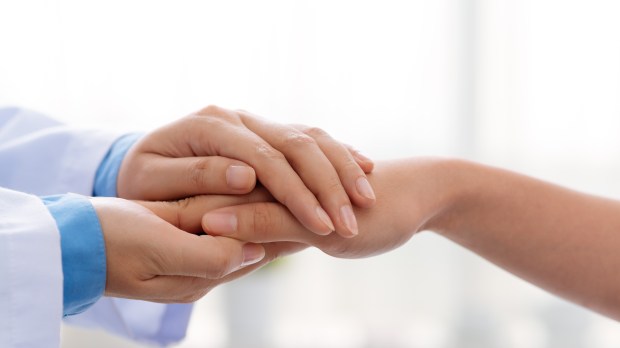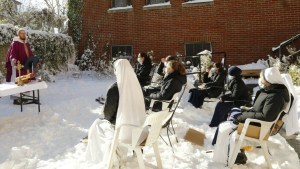Lenten Campaign 2025
This content is free of charge, as are all our articles.
Support us with a donation that is tax-deductible and enable us to continue to reach millions of readers.
A recent report by J.D. Flynn for The Pillar shone a light on an extraordinary group of religious who are using their medical skills, and their faith, to heal the vulnerable in the poorer regions of Knoxville, Tennessee.
In a state that records some of the country’s highest opioid addictions, with medical professionals filling out 74.6 opioid prescriptions for every 100 people, there are areas with high levels of unemployment and patients desperate for medical attention but who lack health coverage.
The Religious Sisters of Mercy came to the rescue, setting up a mobile medical clinic: St. Mary’s Legacy Mobile Medical Clinic. The new clinic isfunded from proceeds of the sale of St. Mary’s Health System in 2011 to a for-profit health organization. The clinic sees a team of religious with medical experience drive to pockets of the county of Knoxville to treat those in need, with the help of local medical workers.
Sisters who serve
In areas of the Appalachian hills that are often neglected, and often considered places to drive through, the RSM roll up to see how they can be of service. There is no judgement, just open hearts willing to help and to love. “We’re really here to serve. And our patients have dignity just because of who they are as children of God,” explained Sr. Mary Lisa, a physician and the medical director of the unit.
One such place is Crab Orchard, which Sr. Mary Lisa describes as “a place to love Jesus Christ by loving the poor.” The mobile clinic visits twice a month and gives basic medical care and prescriptions, and will refer any patient without health insurance to an appropriate medical provider. It won’t offer contraceptives, in keeping with Catholic teaching, or prescribe narcotics due to the severity of the opioid epidemic.
However, while caring for the bodies, these sisters are also caring for the mental and spiritual health of these inhabitants.
“We have a unique opportunity when we minister to our patients, when we show them love and respect. That’s the picture that they get of the Church, and of the Lord’s love. And so our work is definitely an opportunity for evangelization that way, just through the actions of what we’re doing.”
A far-reaching impact
The efforts of the team are far-reaching. They’re not only able to heal physical ailments, they’ve also managed to use their faith to spread a message of hope. Sr. Joan Miriam, who is in charge of scheduling, explained how a woman became so desperate after she became unemployed that she tried to commit suicide. Thankfully her gun misfired and she survived, but she went to the sisters for support.
“Just being able to tell her: ‘You know, the Lord clearly wanted you here.’ That really changed her whole perspective, to have that moment,” explained Sr. Joan Miriam, adding “And we saw in her the change of realizing that she doesn’t have to fall into despair — that there is hope. Just giving them the spark of hope. For us, that moment was incredible.”
In addition to Crab Orchard, the mobile unit also travels to six other rural cities in the Eastern Tennessee Diocese of Knoxville. Over a month they’ll treat over 100 people in need. It’s quite chaotic for the sisters, but as Sr. Mary Lisa points out, “no matter how crazy things are when you go out, when you come back to the convent, you come to that life of prayer and you’re able to receive the Eucharist.”
With their faith being their driving force, as well as their grounding force, the religious get a lot of satisfaction from their work. “Honestly, the witness of our patients, and just working with our staff, it puts things in perspective. To see the hardships that our patients face, but also to see the joy that they have. To know that we all face hardships, but to give that to the Lord. And then to be able to pray for our patients — to bring them to prayer, which is our main vocation always,” shared Sr. Joan Miriam.
Rick Stika, the Bishop of Knoxville, is hopeful that the diocese will also be able to fund a dental clinic for the project. If you’d like to read the original report, including more thoughts from the sisters, click here.


